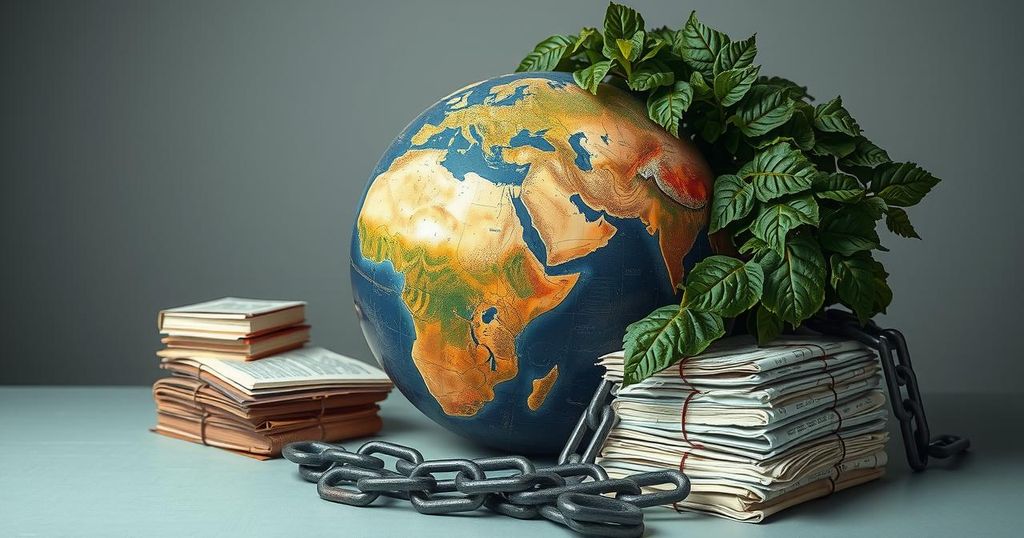Corruption Poses Threat to Global Climate Action, Warns Transparency International

A recent report by Transparency International reveals that corruption is severely undermining global efforts to address climate change. Many countries involved in climate action are ranked poorly in terms of corruption, affecting funding and policy implementation. The report emphasizes the urgency of rooting out corruption to foster effective climate initiatives, especially in vulnerable nations.
Transparency International has issued a warning that corruption poses a serious threat to global efforts to combat climate change. In its Corruption Perceptions Index for 2024, the organization revealed that many nations involved in climate initiatives, particularly as hosts of UN climate summits or those significantly susceptible to climate impacts, have received poor ratings or declines in their scores. Chief Executive Maira Martini emphasized the urgency of addressing corruption, stating, “We must urgently root out corruption before it fully derails meaningful climate action.”
The report highlights that corruption can lead to the misallocation of funds earmarked for climate mitigation, compromising environmental regulations and enforcement. Countries perceived as having higher public sector corruption receive lower scores on a scale ranging from 0 to 100. For instance, Brazil, which will host the COP 30 climate meetings in 2025, recorded a score of 34, its lowest to date.
The previous summit organizer, Azerbaijan, known for its oil production, obtained a score of only 22. In contrast, the United Arab Emirates, which hosted COP 28 in 2023, achieved a score of 68, following the appointment of its state oil company chief as the chair.
The report identified deteriorating scores among traditionally influential countries in climate discussions, including Canada (75), New Zealand (83), and the United States (65). According to the findings, corruption in these nations undermines global climate progress. These leading countries bear the responsibility to push for ambitious climate objectives and significant reductions in emissions.
Furthermore, several nations that are most vulnerable to climate change also exhibit some of the worst rankings on the index, such as South Sudan (8), Somalia (9), and Venezuela (10). The report asserts that marginalized populations, with fewer adaptive resources, are the most in need of governmental assistance during extreme weather and pollution incidents.
To combat these challenges, the report suggests developing improved metrics and frameworks for climate transparency and accountability. Such measures would facilitate better tracking of climate progress and ensure the proper application of allocated funds.
In conclusion, the Transparency International report underscores the detrimental role of corruption in hindering global climate action. It highlights the urgent need for reform and accountability to ensure funds are utilized effectively for climate initiatives. The findings call for stronger frameworks to enhance transparency, especially in nations critical to climate negotiations and vulnerable to climate impacts.
Original Source: www.straitstimes.com






